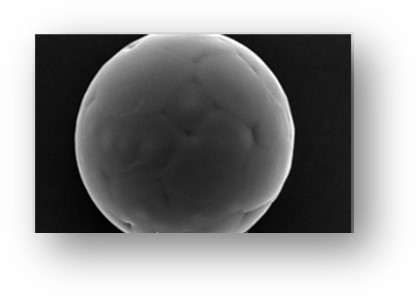What Are the Differences Between Microspheres and Microcapsules?

As you know, Oakwood Labs is a global leader in sustained release injectable pharmaceuticals. One of the key components of these drugs are microparticles, which are delivery systems for water-insoluble and sparingly water-soluble agents. Microparticles are split into microspheres and microcapsules.
Both of these play an important role in the pharmaceutical development process at Oakwood Labs. Learn more about microspheres vs. microcapsules.
What Are Microspheres?
Microspheres are small spherical particles that have a solid outer casing, are hollow, and do not contain fluid inside. These particles are made out of polymers and are used in drug delivery applications due to the high surface area, but low particle size. Their size ranges from 1 μm to 1 mm, making them effective for traveling within different areas throughout the body, which helps increase absorption rate and bioavailability.
Microspheres can be delivered through oral, parenteral, nasal, ophthalmic, and transdermal methods. They attach to proteins, peptides, antibodies, antigens and other small molecules to travel through the body and release at controlled rates.
Using microspheres in drug delivery has many benefits including release rates are tailored to specific applications (constant rate of delivery or rapid release), an increase in patient comfort and compliance by reducing the dosing frequency, and more.
What Are Microcapsules?
A microcapsule is also a small spherical particle, but its size is a little different, being 50 nm to 2 mm. The structure of a microcapsule is that of a membrane-enclosed core with a shell-like coating. Sometimes there are multiple cores within the coating. The core is composed of a drug constituent, stabilizers, or additives. The outside coating consists of an inert polymer, coloring agent, plasticizers, resins, waxes and lipids.
Microcapsules allow the core to be isolated from the outside environment and then released when desired. These microcapsules are used for sustained drug release, converting liquid drugs in a free-flowing powder, reducing toxicity and GI irritation, and for drugs that are sensitive to oxygen, moisture or light.
The Key Differences Between Microspheres and Microcapsules
The major difference between microspheres vs. microcapsules is the structure of the particle. As mentioned previously, microspheres have a solid casing and are hollow, while a microcapsule has a solid or liquid core in a shell-like coating.
The main reason for microencapsulation in pharmaceuticals is to protect drugs from environmental hazards like humidity, light, oxygen or heat. They also help controlled release within the patient and avoid too rapid of a release.
Microspheres are manufactured out of different types of polymers that when injected react within the patient to release a certain amount of the drug. While microspheres and microcapsules achieve similar goals for controlled drug release, their structures are what sets them apart.
Our Process for Manufacturing Microsphere Technology
At Oakwood Labs, our microsphere manufacturing capabilities have solved complex pharmaceutical industry challenges for more than 20 years. Our microsphere technology Chroniject™ is a patented, polymer-based injectable microsphere system for drug delivery. This technology is unmatched, and some of its major benefits include:
- Use of small-scale batches allow for rapidly developed formulations
- Formulations are easily scalable
- Process parameters are well-controlled
- Compatibility with peptides, small molecules, and proteins
- Excellent stability
- Flexible release durations ranging from one week to one year
Reach Out Today for More Information on Microcapsules and Microspheres
Our team is fully equipped and operates a staffed research and development facility specifically created to manufacture sustained release injectables. Oakwood Labs is committed to developing products to provide therapeutic benefits to patients.
If you are interested in learning more about microspheres vs. microcapsules for drug delivery, contact us at Oakwood Labs today.
- CROs, CMOs, CDMOs: What Are the Differences? - July 26, 2024
- 35 Statistics About the Pharmaceutical Industry - June 20, 2024
- Subcutaneous Drug Delivery and Development - May 22, 2024

